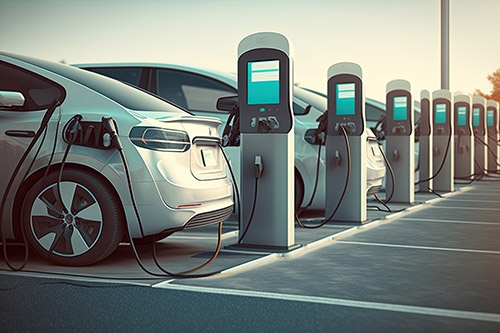A lack of charging infrastructure has been a significant obstacle to broader mass adoption of electric cars…reports Asian Lite News
The UK government should take urgent action to encourage people to switch to electric vehicles, from targeted subsidies to speeding up new charging infrastructure, said a report from Britain’s upper house of parliament released on Tuesday.
The House of Lords report, entitled “EV strategy: rapid recharge needed,” which follows an inquiry into Britain’s electric vehicle transition strategy, also calls on the government to clearly communicate to the general public why they should buy EVs.
“They have got to do what politicians don’t like to do, which is get into the space of talking to people about how they live their lives and how they’re going to support them to do it,” Baroness Kathryn Parminter, who chaired the inquiry, said in an interview. “That is the gaping hole and that is where the government’s got to put its foot on the gas.”
The Lords report calls for targeted incentives to make EVs more accessible for lower-income car owners. It also says the government should “turbo-charge” the building of new charging infrastructure, including by reviewing “outdated and disproportionate planning regulations which are a major block to the rollout.”
A lack of charging infrastructure has been a significant obstacle to broader mass adoption of electric cars.
The report comes as Britain sold its one-millionth fully-electric vehicle in January. But while overall EV sales have risen, industry group the Society of Motor Manufacturers and Traders (SMMT) warned that falling demand from private buyers meant the UK government should take action to subsidize sales.
A spokesperson for the UK transport ministry said a decade of government grants and incentives had led to more than 1 million EVs on British roads.
“The government is targeting its investment where it will have the most impact, to ensure value for money for the taxpayer,” the spokesperson said.
Last September, British Prime Minister Rishi Sunak announced a delay to the country’s ban on fossil-fuel cars to 2035 from 2030, citing the “unacceptable costs” to British households.














